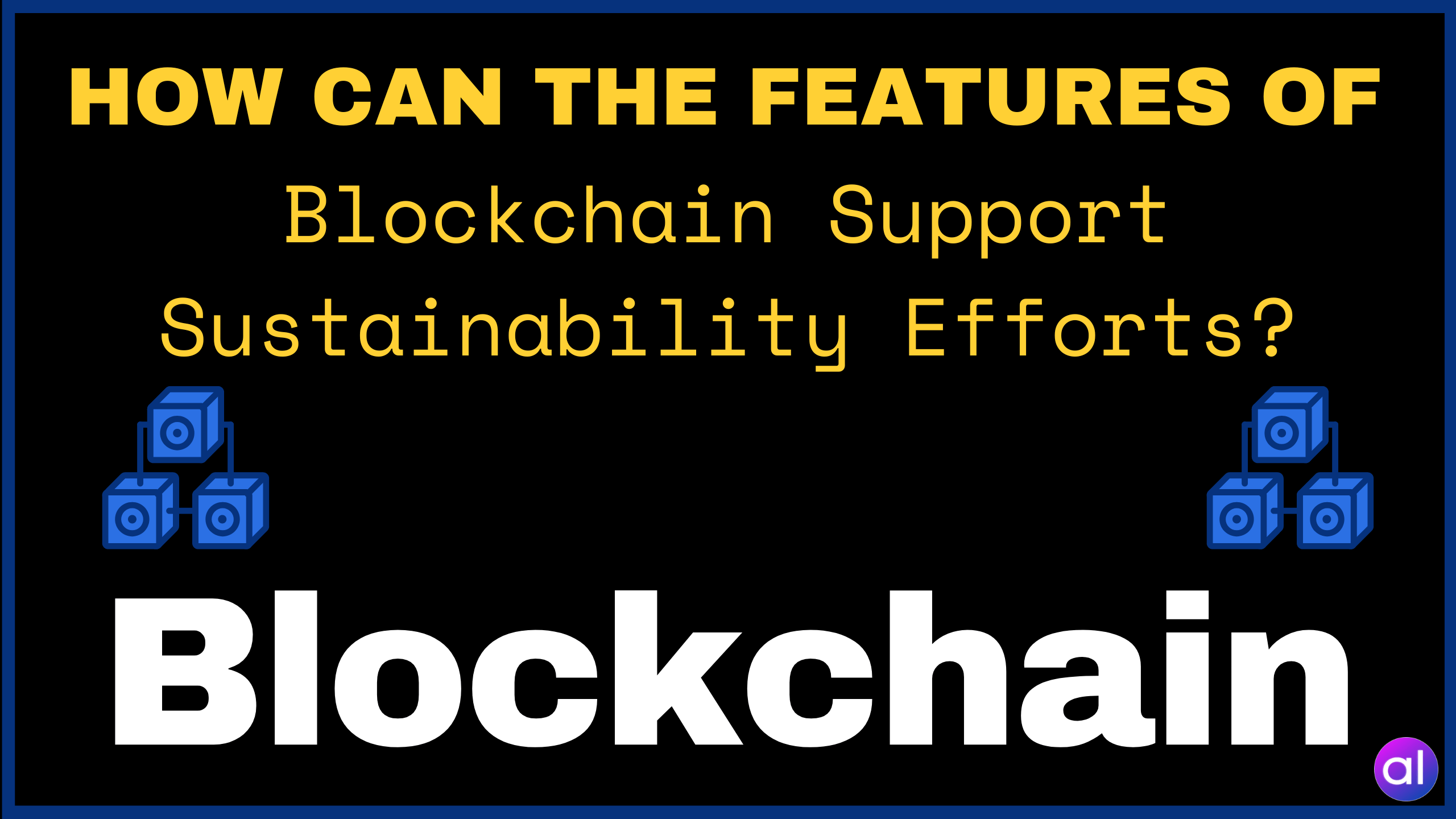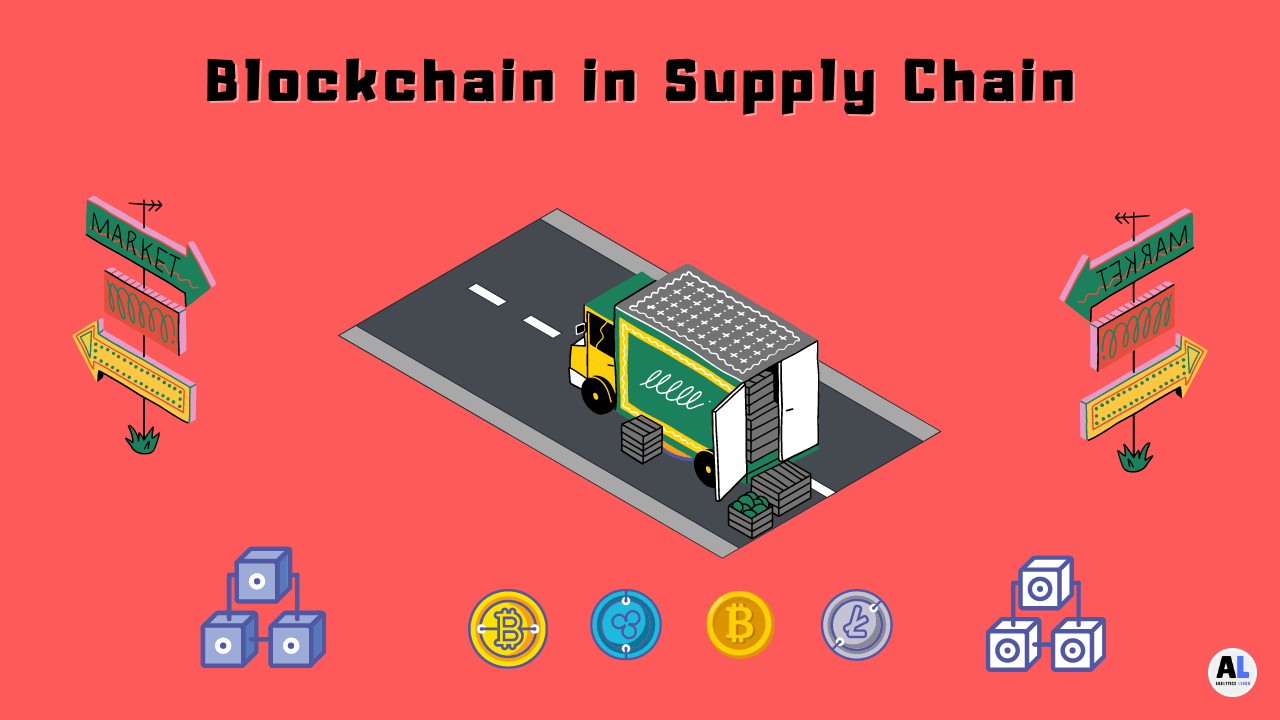In this guide, we will see the Blockchain Features like How can features of blockchain support sustainability efforts? in today’s world, with detail of each.
Blockchain technologies have revolutionized the way we do business in many different areas, especially when it comes to sustainability efforts.
Blockchain technology, if implemented correctly, can be one of the most powerful tools for businesses looking to reduce their carbon footprint and/or work toward sustainable practices in general.
Blockchain’s features of immutability and transparency can be used to help reduce carbon emissions, increase energy efficiency, and much more.
While blockchain is often associated with cryptocurrencies such as Bitcoin, it’s easy to overlook the sustainability benefits it can offer even to those who are not working with currencies at all.
In this article, we will explore some of the features of blockchain that can support sustainability efforts in the business world.
To learn how features of blockchain support sustainability efforts in all areas of business, but before getting into that first learn what blockchain is and its features of it.
Related Article: How does the Blockchain Work? – Smart Contract, Ethereum
What is Blockchain Technology?
A blockchain is a distributed database, it stores data in records called blocks which are organized into chains, Each block contains a timestamp and a link to the previous block.
Transactions are stored as they happen in chronological order with time stamps and by linking to the previous block so that if any record is changed then all blocks after it would need to be recreated.
Blockchain technologies have the potential to help companies become more socially responsible, reduce costs to growth markets, and increase transparency in their supply chain—if they utilize them correctly.
Related Article: Blockchain and Cryptocurrency: What is the Difference?
Does Blockchain or its features Support Sustainability efforts?
The power and efficiency of Blockchain technologies have the potential to reduce the company’s overall computing power, and help companies provide transparency into social issues.
The availability of data can improve marketing and reduce costs to growth markets, and supply chain data can improve transparency into social issues.
The implementation of these various features will not be immediate for many industries, but as blockchain technology is more widely adopted it will be able to change the way we do business on a global scale.
Related Article: Blockchain Wiki: The Future of Online Transactions
How can Features of Blockchain Support Sustainability Efforts?
The different features of the blockchain promote sustainability by giving businesses more access to data, and Data can be used to improve marketing and reduce costs to growth markets.
Companies can use supply chain data to find information on social issues. Blockchain technologies also reduce a company’s overall computing power, which is important for sustainable efforts.
Blockchain features like these are beneficial in that they offer companies greater insight into how they can become more sustainable.
Related Article: Top 10 Applications of Blockchain in Healthcare
Features of Blockchain for Support Sustainability Efforts
Here are some of the ways blockchain Support Sustainability Efforts at companies across the world and this are the features of Blockchain for better future:
1. Data Can Improve Marketing And Reduce Costs To Growth Markets
Marketing is a key to success in the 21st century, but it’s not always easy, Data can be used to improve marketing and reduce costs to growth markets.
Blockchain technologies like smart contracts and tokens allow companies to reduce their overall computing power, which in turn reduces the amount of electricity they use.
Blockchains also provide transparency into social issues. This allows companies to better understand how they are impacting the world around them and what else they might be able to do moving forward.
Related Article: Data-Sharing in a Blockchain: Which Statement Describes It Best?
2. Transparency Into Social Issues Can Be Provided
Blockchain technology could be used to track products from their origins to the customer. This would create transparency into how and where products are made, allowing customers to make more informed decisions about the products they buy.
By using the Blockchain, a company can cut back on its overall computing power. With this in mind, companies might not need as many computers or data centers for processing transactions which might result in reduced energy usage and lower carbon emissions.
3. Overall Computing Power Can Be Reduced
Blockchain technologies have the potential to reduce a company’s overall computing power by reducing the need for centralized data storage.
This could lower costs and improve efficiency, as companies would not need to maintain as many servers in order to store their data.
Additionally, blockchain technologies offer transparency between all stakeholders involved in transactions – removing any chance for fraud or misrepresentation.
All transactions are public and recorded on the blockchain, so it is easier to ensure that no one is being taken advantage of.
4. Sustainability Efforts Can Support The Community
One way blockchain is supporting sustainability efforts is by reducing the power that companies need to operate, which adds more advantages in power saving and wastage of energy resources.
The Sustainability Efforts which we can put helps our community to create balance in the world by saving nature as well as humanity, and blockchain can add advantages in that.
Blockchain features of data sharing or security, power saving, and decentralization will make global Sustainability Efforts more easy and solvable to cocreator a better community of humans with blockchain support.
Top 3 Features of Blockchain for sustainability efforts
- Improved access to data helps the growth of a business’s marketing campaigns and minimizes its expenses for global reach.
- Supply chain data can help companies provide transparency into social issues, and this could be handle easily by blockchain.
- Computing power is reduced by the use of blockchain technology in many different settings.
1. Data Access
Data access is one-way blockchain technologies can help companies provide transparency into social issues. For example, Walmart has recently partnered with IBM to use blockchain technology to track food movement along the supply chain.
This allows Walmart to identify any potential problems in the supply chain and work quickly to fix them before products spoil or cause illness.
The company will also be able to measure how long it takes for an order to be processed, which will allow for improvements in the overall efficiency of their supply chain.
There are other ways that data access can improve marketing as well – it makes customer feedback more easily available which helps develop a personalized customer service approach that customers are more likely to enjoy and stay loyal to.
2. Transparency of Supply Chains
Supply chains are a huge part of the modern world, Whether we’re talking about food, clothing, or medicine, supply chains are ubiquitous. One challenge that supply chains face is a lack of transparency.
Blockchain in supply chain is crucial this technologies provide companies with the opportunity to give their customers access to important information about where their products came from and how they were made.
As these technologies become more mainstream in society, brands will have an increased need to communicate what steps they’ve taken to ensure a sustainable future for themselves and their consumers.
For example, how has the company cut back on carbon emissions? Has it cut down on its waste footprint? These types of questions will be answered using transparent supply chain data which will allow people to see for themselves whether or not a company’s actions match up with its rhetoric.
Related Article: Why do we need blockchain in the supply chain industry?
3. Computing Efficiency
The most common use of blockchain technologies is computing efficiency, The decentralization and distribution of the technology reduces a company’s overall computing power, making it more sustainable for companies who may not have the resources to maintain complex systems.
For example, IBM has been working with the government of Honduras to move their land title records from paper-based systems to a blockchain-based system in order to reduce fraud, lower costs and improve accuracy.
Why do we need to work on Sustainability Efforts?
By 2050, there will be 9 billion people on the planet and the agricultural industry will need to feed that population. It’s estimated that the demand for food will be 50% greater than the current production capacity.
And with climate change, we’re facing increased droughts, flooding and extreme weather events. To make matters worse, the world’s water supply is dwindling and there are many regions where access to clean water is limited or unavailable altogether.
In order to address these issues, companies need to move towards a circular economy by thinking about how their products and services will affect both natural resources and human health in the future.
Blockchain has several potential applications for this process but it remains to be seen which ones are best suited.
Related Article: Smart Contract Security in Blockchain and DeFi
Conclusion
In conclusion, the three main ways that blockchain technologies can be used to improve corporate sustainability are by providing transparency into social issues, reducing a company’s overall computing power, and improving marketing.
By using these three methods, a company is able to better its position in the marketplace while also reducing its environmental footprint.
Related Article: How Blockchain Works? : Introduction To Blockchain Technology

Meet Nitin, a seasoned professional in the field of data engineering. With a Post Graduation in Data Science and Analytics, Nitin is a key contributor to the healthcare sector, specializing in data analysis, machine learning, AI, blockchain, and various data-related tools and technologies. As the Co-founder and editor of analyticslearn.com, Nitin brings a wealth of knowledge and experience to the realm of analytics. Join us in exploring the exciting intersection of healthcare and data science with Nitin as your guide.










